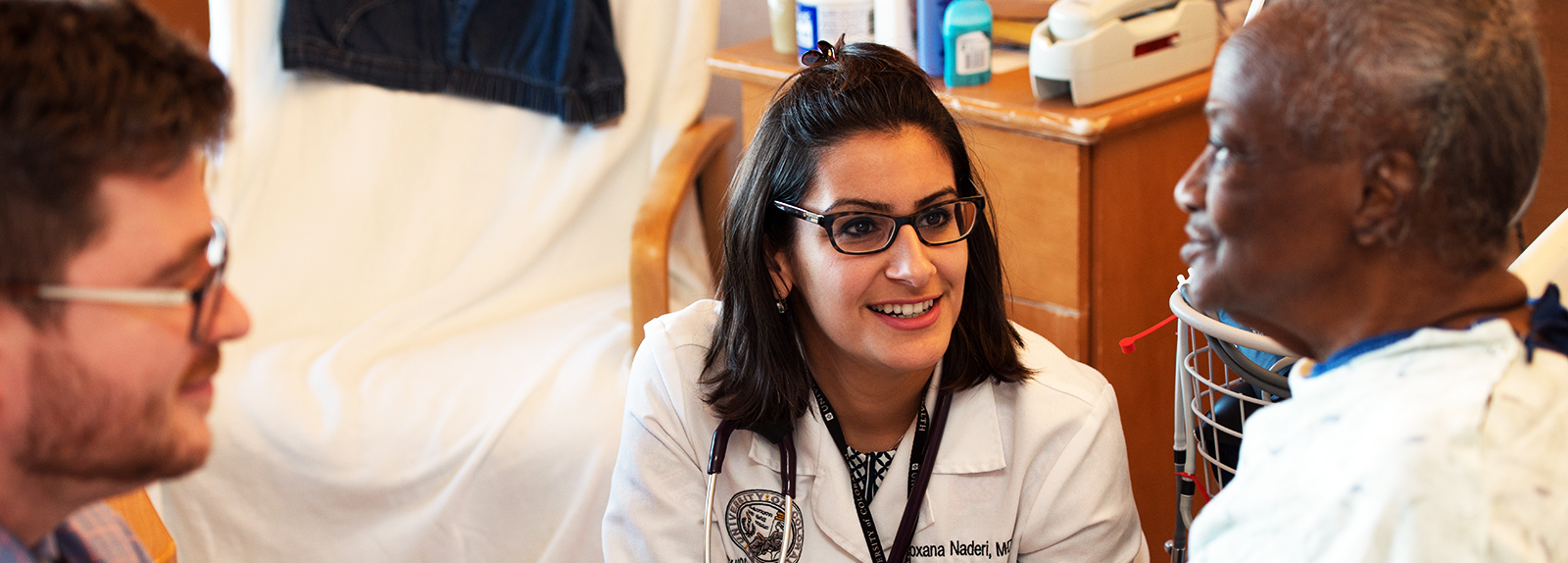
Medical Student Professionalism Committee
Professional behavior is expected of School of Medicine students throughout the medical school curriculum. Professional behavior includes, but is not limited to, respectful and integrity-based involvement, interactions, and introspection. This behavior manifests as responsibility to patients, peers, faculty members, staff, and oneself. It also includes responsibility for self-education and self-improvement, timeliness, attendance, and active participation in learning activities. Expectations for professional behavior increase as a medical student moves into the clinical learning environment and assumes responsibility for patient care. Professional behaviors may be considered when grades are assigned by Course and Clerkship Directors and are included in reviews of student performance and progression. Unprofessional behavior may also result in formal consequences (including probation or dismissal), even if such unprofessional behavior did not affect the student’s grade.
The Medical Student Professionalism Committee was formed in 2002. Its purpose is to:
- enhance and encourage medical student professional behavior
- review—in strict confidence—instances of substandard medical student professional behavior
- offer remediation for unprofessional behavior
Committee membership includes basic science faculty, clinical faculty, faculty from the Center for Bioethics and Humanities, faculty from other University of Colorado healthcare professional programs or schools, and student representatives from each class.
The Professionalism Feedback Process encourages timely and regular feedback to students on their professional behavior and documentation through the Professionalism Feedback Form.
Professionalism Awards provide an opportunity for peers and faculty/residents/other healthcare team members to recognize outstanding examples of professional behavior.
Contact Info
Chair, Medical Student Professionalism Committee
University of Colorado School of Medicine
Mail Stop F-523
13001 E. 17th Place
Aurora, Colorado 80045
Email